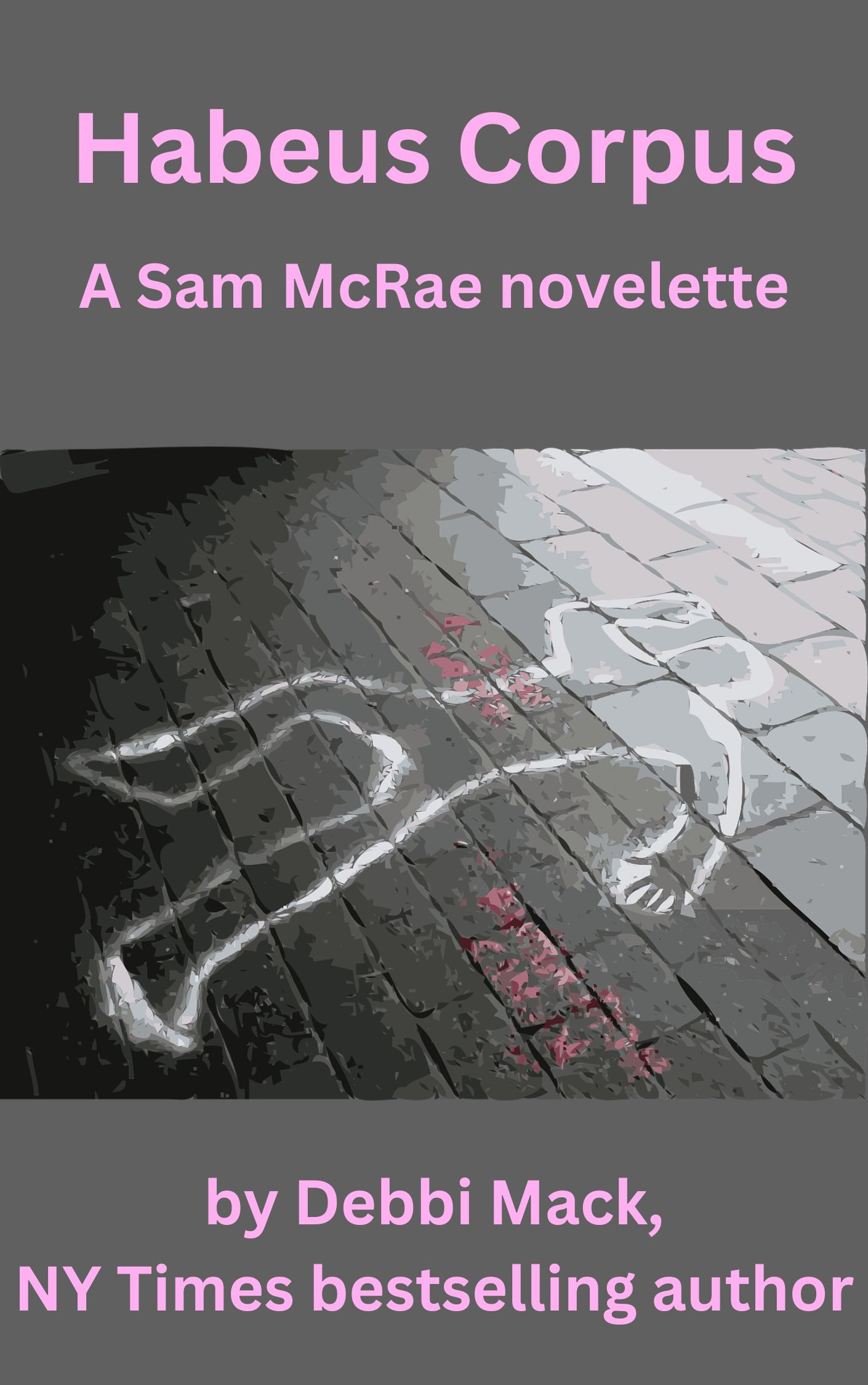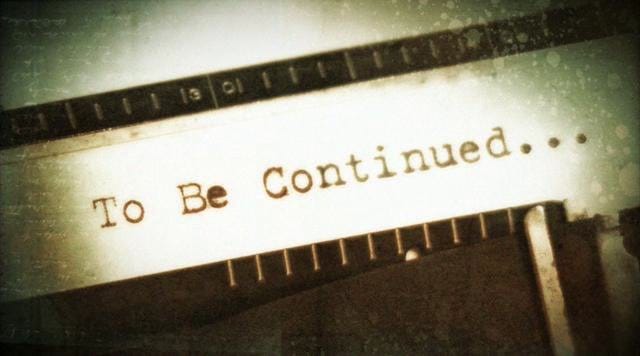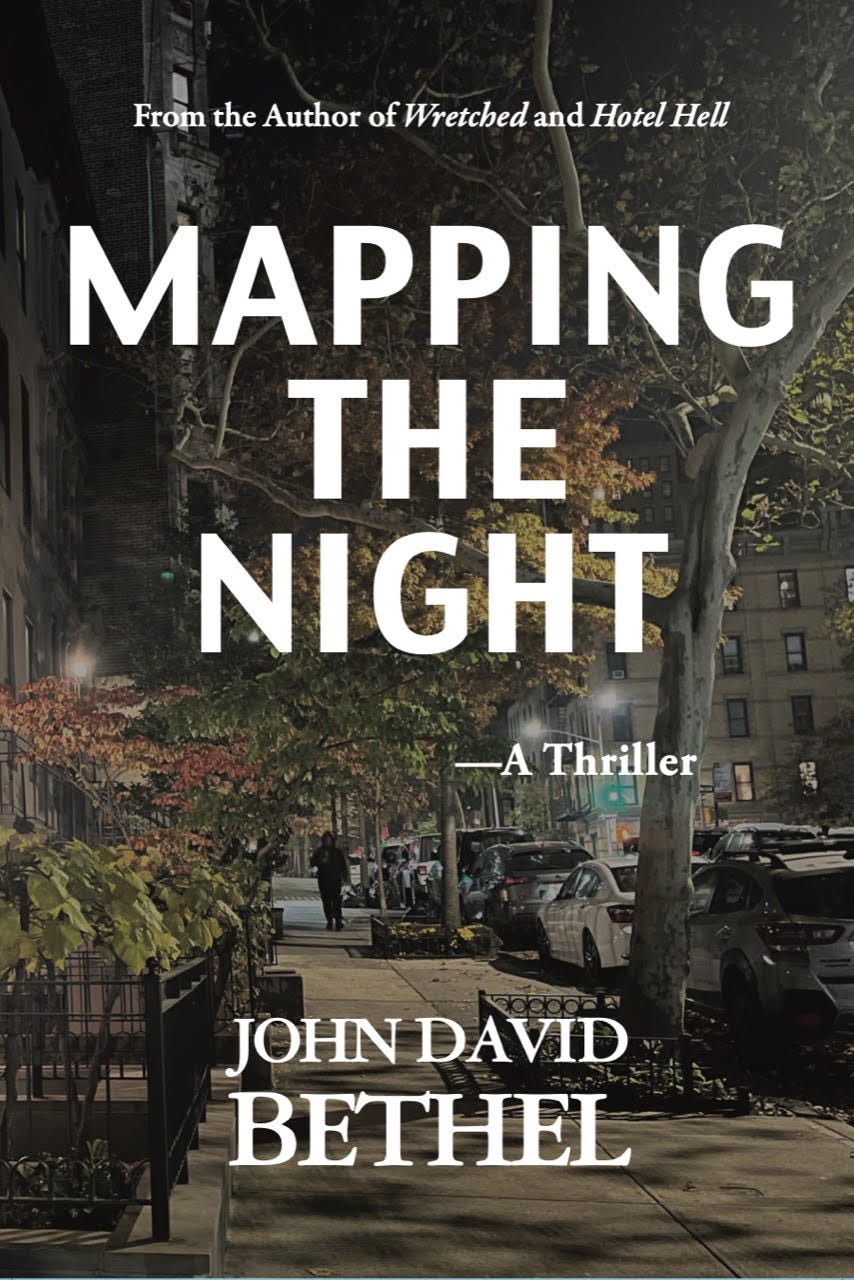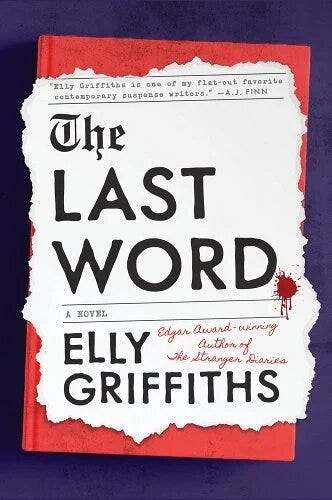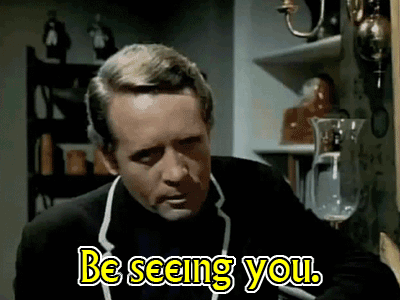May Short Stories and More
Hi and happy May! Hard to believe, but true that we’re almost halfway through the year!
Here’s more of the continuing story of Habeus Corpus!
Episode Three
I directed Carla to a coffee shop in Laurel she could use as a temporary way station. As one might imagine, she hoped to spend the night elsewhere, even if she couldn’t check out.
And I, for one, was certainly not going to advise my client to sleep in a room where dead bodies kept showing up.
Carla decided to disturb the room as little as possible. She limited what she took with her to two Valiums tapped from the bottle into a small pill holder and stowed in her shoulder bag. “If I need anything else, I’ll just buy it,” she said.
That seemed smart. No one could accuse her of disturbing a crime scene. Nobody could claim that she outright hid, but she wasn’t staying in a room where a dead body had been dumped, removed, and replaced by another. Were I in her situation, I might have taken more Valium, but then again, perhaps not. Neither Carla nor I needed to add drug addiction to our lists of troubles.
Meanwhile, she said she’d check around for another place to stay. I could only hope no one was hacking her phone, emails, credit cards or social media accounts. Or otherwise following her from a great distance.
Carla was good enough to bring the rest of the money to cover my retainer fee, plus extra, which came to $1,000 total. I nearly protested the amount but bit my tongue. I have bills to pay, plus time and advice are a lawyer’s stock in trade. Perhaps, like Carla, I should have become a CPA.
This wasn’t what normally fell within my bailiwick. Hell, there was nothing normal about any of this. However, I’ll admit I was damned curious. And you know what they say about curiosity and the cat. Maybe it was the way Carla had awakened next to a murdered man and come to me, a friendly face from the past. This woman desperately needed someone’s help to extricate her from a potentially horrible situation. Or something else was going on.
Assuming that photo wasn’t doctored, the picture seemed to tell a thousand words about Carla. If one assumed the worst. But why would this happen to her? Did Carla really have a net worth great enough to merit a deliberate blackmail attempt? Or did the killer pick her room at random and realize the opportunity later? And was Carla telling me everything?
I left the hotel to swing by a Target, where I picked up a burner phone. Once I returned to my car, I used the burner to call the police directly.
When the desk sergeant picked up, I said, “I found a dead body. And know of another.”
After a pause, the man said, “Could you hold for a moment?”
“Sure.”
The line went silent for about a minute. Then, a voice from the past came through the speaker. “Homicide. Detective Derry speaking.”
I took a breath and tried to pitch my voice lower and raspier.
“There’s a dead man in Room 405 of the Majestic Hotel just south of Laurel.”
I heard the whisper of pen on paper from the other end as Derry took notes. “You saw a dead man. In your room?”
“No. Not my room. But also, there was another dead man there before that one, but he disappeared.”
Derry paused. I could almost hear his molars grinding.
“Ma’am, with all due respect—”
“I have been led to believe that there was another dead person there. But I didn’t see it.” That’s as far as I would go.
“By whom?” he snarled.
“I can’t tell you. Sorry.”
“And who are you?”
“Majestic Hotel, Room 405,” I repeated and ended the call.
I returned to the hotel and approached the front desk, where Nicole was busy on the computer and a concierge stood nearby like a soldier at ease, waiting to help no one. “Can you tell me where to find Ms. Daniels?” I asked the uniformed man. The murmurs of background muzak and conversation floating through the lobby somehow enhanced the feeling of the calm before a storm.
“Her office is down that hallway.” He pointed toward a corridor across the lobby from us. “You need to make a few turns,” he added, swaying one hand to demonstrate. “Just follow me.”
We crossed the lobby and moved down a series of hallways that made me wish I’d brought breadcrumbs.
After stopping before one of a series of identical doors (distinguishable only by the nameplate, which in this case read “Catherine C. Daniels”), my escort through the maze gave it three light raps. A moment of silence passed. Then another. The concierge knocked on the door again. Nothing.
He turned the knob and opened the door wide. It was an office. It had a desk with no one behind it and two similarly empty guest chairs. The desk had paperwork on it, neatly arranged, as if to be displayed in an article about office administration.
A business card holder sat at one of the desk’s corners. I entered the room and grabbed her card, discreetly palming two or three more.
“I got her card,” I said. “I’ll get in touch with her.”
The concierge nodded. He led me back through the labyrinth. I gave him twenty bucks before I left. That made him smile. And my client could afford it.
I wasn’t sure what my strategy would be for rooting out a dirty employee or two at the hotel. But I didn’t want to overlook how Morton and Anne Reeves might figure in all this.
Thinking over my options, I made the command decision to use the burner phone to call the number that kept popping up. 555-3476.
Got a robotic voice mail requesting that I leave a message. I hung up.
Then, I stopped by my office. The memo was waiting for me in my fax tray.
Dated two months ago, the invoice was as Carla had described it. An unreadable-to-me sequence of letters and numbers lined up in groups. It was an invoice that identified the supplier as Reeves Books and Curios and the buyer as Greener Future.
I’m no business accountant, but even I found that peculiar. The invoice item might be code. Someone had certainly made a mistake.
Episode Four
I couldn’t begin to decipher the invoice. Instead, I pondered the mystery of the disappearing (and replaced) corpse. How could that happen?
The killer paid someone at the hotel to look the other way. The hotel staff was dumber than I could imagine. Or the killer worked at the hotel. Perhaps a combination of these factors.
I did a quick search on Greener Future. Their mission statement said they gave grants to sustainability organizations.
Probably handled or arranged a shitload of money. On an international scale. I wondered how much Carla knew about the Mortons. Of course I take my own clients as they come. Not that I assume they’re being completely forthcoming with me.
It was time to call in a few favors. I got on the phone to one of the few people I could trust in this situation.
“Reed Duvall.” The familiar tenor voice was reassuring.
“How’s it going?” Wow, that was lame. It had been almost two years since Duvall and I had last spoken. I felt bad about not keeping better touch during the weirdness after I’d shot a man who eventually died from his wounds.
Taking a moment of awkward silence to control the tone of my voice, I said, “I actually would like to hire you.”
“Great,” he said. His tone was careless, as if I’d invited him to lunch. “What do you need?”
“Listen,” I said. “I have a, uh, delicate situation. Can we meet? Like now?”
We arranged to meet at my office in an hour. Thirty minutes later, I was back at my desk with half an hour to kill before Duvall arrived.
I used the time to run a news search on Greener Future. The organization kept a relatively low profile. An article about their founding three years ago was the sole hit of interest. Greener Future was founded by Chester Crane, an “entrepreneur and philanthropist,” according to this source. The article was written by a staff reporter, Gerald Lambert. Perhaps a call to Mr. Lambert was in order.
In addition, I logged into a free database provided courtesy of my membership in the Maryland State Bar Association. I delved into the topic of privacy rights in hotels. Apparently, they’re treated for Fourth Amendment purposes just like homes. You need a warrant based on probable cause (or, presumably, to fall within an exception) or the resident’s permission to search an occupied room. However, once the resident checks out, they no longer enjoy that protection. I texted Carla: “Don’t check out.” We needed to buy a little more time.
After that, I still had fifteen minutes to kill. I put together a short list of questions for Gerald Lambert, then checked my own financials, and did a quick news search. Anything to take my mind off Duvall’s imminent arrival.
With ten minutes to kill, I poured my third cup of coffee and enjoyed a sip. At five minutes, I was straightening paperwork when the raps at the door jolted me upright.
“C’mon in,” I said, aiming for a casual air. “I’m decent.”
The door opened and Duvall stood there a moment. He hadn’t changed a bit. His light brown hair had that weird cowlick that spun a portion into a small tornado. His eyes were silvery-greenish-gray or grayish-green. Variable. And always amused.
“So, what’s up?” His attempts to maintain a neutral expression were betrayed by those same eyes.
“You coming in?” I asked. “Or are you just going to stand there?”
After bringing Duvall up to speed, he and I chewed the fat for a bit about what had happened since the shooting incident that nearly made me quit my practice. And my subsequent refusal of an offer to move in with him.
“I think the thing about it is, not just the fact that I shot someone and they ended up dying,” I said. “I think it was my complete lack of judgment. How I’d managed to get into the situation. The knowledge that this man had raped me. … It was unfathomable.”
Duvall merely nodded. No need for words.
“I doubted my ability to … do my job. Think and make rational decisions.”
Duvall shook his head. “You’ve never lost that. You think too much.”
I laughed. “I know. And law school only made it worse.” I paused, then added, “Anyway, if I seemed a bit …”
“Distant?” he finished. “I understand. I knew even then that you might reject the idea.”
“I just wasn’t ready at all.” For a relationship? After my great serious of failures at those?
Duvall’s face lit up. “Let me know if you change your mind.” His manner was just glib enough.
Like a weight had lifted from my chest, I breathed easier now, but forced my attention back to business. I asked him to keep Carla’s matter within a reasonable budget, as I didn’t want to burn through my thousand dollars too quickly. I might have to reign in the size of my tips if I weren’t careful.
“Don’t worry about it,” Duvall said. He scribbled in his notebook. “Chester Crane,” he muttered. “And Greener Futures, you say?”
“Greener Future. No S. And, if you could, Morton and Anne Reeves. And Carla Addison.”
After Duvall left, I tried to reach Gerald Lambert. I pulled up the newspaper’s website and located a phone number for the newsroom.
I placed the call and was guided through an automated series of messages to the Desk of Gerald Lambert. Neither Gerald nor his desk were available, but I was invited to leave a message.
I explained who I was in as a few words as possible and asked him to call me back.
Clicking another link on the news website, I pulled up a gallery of staff photos with contact information. Lambert looked to be in his late 20s or early 30s. He wore a serious expression and a pair of tortoise-shell glasses. Dark hair and brown eyes. Cute.
I shot off an email to Lambert and bookmarked the page. Then, searched for more of his articles.
Lambert published all over the net. His beat on the paper was business, high tech, and sustainability. He also had a blog called Green Reality Check.
When he wasn’t covering the opening of a new tech company facility within the state for his employer, he was engaged in investigative reporting, which he blogged on the side.
I checked the address for the paper, as well as Greener Future. Both were up in Baltimore County. Before I ventured there, I figured I’d hit the hotel again. See if the cops had arrived yet.
However, while I was in the area, I wanted to swing by Morton’s bookstore. Find out what I could about the coded invoice. Feel Reeves out, maybe poke around a bit. The weather was pleasant enough, so I walked. It was far cheaper than the cost of the gas required to find a decent parking spot on that part of Laurel’s Main Street.
Turned out I’d passed Morton Reeves’s storefront book shop many times without really noticing it. The place was housed in a two-story brick building shaped like a cereal box, one skinny side adjacent to the sidewalk.
According to Carla, he and Anne lived in old Laurel. Anne worked as a temp, in various jobs.
Before I entered the store, I briefly scoped out the structure of the building. The storefront sported the traditional showcase window. The building was wedged between two others—another brick box and a two-story house—separated by narrow alleys that served as driveways to separate parking areas. In the bookstore’s case, that area consisted of four parking spaces, two of which were currently occupied. In the back, one could enter the building at the first- or second-floor level. A set of metal stairs zig-zagged toward the plain brown door that provided access to the upstairs.
Tromping up the steps, I opened the door and entered a short stub of hallway with two doors on each side. All unmarked. All offices? Hard to say, as there was no directory.
After a quick glance around, I tried the doors. The first room, judging from the piles of boxes, seemed to be used for storage. I found Reeves’ place on the second try.
Inside a tiny anteroom, a receptionist, a hatchet-faced vision of secretarial efficiency—from the 1940s—sat at a functional, if aging, desk, with a computer and phone so old she was lucky it had a keypad.
“Can I help you?” The receptionist droned.
“May I,” I said.
Her face screwed into a scowl. “Huh?”
“Nothing. Is this Morton Reeves’ office?”
The receptionist pressed her lips together, as if swallowing a retort. “Do you have an appointment?”
“No,” I said. “But if he’s available, this will only take a moment.” I entered and approached the desk.
“He’s not here.” She delivered the news with a tiny smile.
“Are you sure?” I asked.
“Positive.”
There was a door behind the receptionist’s desk. It was closed and made of wood, so I couldn’t see through it. For all I knew, Reeves could be there, up to anything or nothing behind the wooden door.
But short of muscling past Ms. Efficiency and busting in on him, I wasn’t likely to find that out. Frankly, I had neither the desire nor the energy to play it that way.
I fished one of my cards from within my shoulder bag, handing it off to her. “Please tell him I’d really love to meet him to discuss Greener Future. Have him email or call me.”
The receptionist arched an eyebrow and plucked the card from my hand by her fingertips, as if she were handling a very thin turd. She glanced at the card and grunted.
Having dispensed with that, I decided to browse the bookstore. My attempt to enter from the rear door was stymied by a deadbolt lock. As I made my way around to the front, I spied what had to be the emergency exit for the first floor.
Morton Reeves’ bookstore, simply named Reeves Books and Curios—a small sign in the picture window read: “Rare Books a Specialty”—was a somewhat cramped affair. The front window displayed books jammed together on shelves stretched around the lower half of every wall. Above the shelving, a variety of retro posters and other art adorned the place. Several long standalone bookcases extended throughout the store.
As I entered, a bell tinkled above me. “Be right out!” a woman yelled from within.
While I waited, I did a quick browse through the titles. Lots of old paperbacks. Quite a few hardcovers. Many of them much older than me. The place was permeated with the faint odor of dust or mold. The smell of old books.
A tall brunette with short hair, sculpted to her head, dressed in jeans and a peach-colored shell top, strode from a back room toward where I stood. “How can I help you?” she asked, with a touch of an accent I couldn’t identify. British? Or just nasal?
“I’m looking for Morton Reeves.”
She shook her head. “He’s upstairs, in the office.” Her tone was faux sweet, a bit too chipper. I wondered if her accent was as fake.
I looked about me. “Where are the stairs?”
The clerk jerked her thumb toward the front. “Just go out and walk around to the back parking lot. There’s a set of stairs to the second-floor offices. Mr. Reeves doesn’t want people cutting through the store.”
I nodded my thanks, thinking about what a terrible sales strategy that was. Maybe they simply lacked the staff needed to cover two exits.
Before leaving, I asked, “You wouldn’t have a hardcover copy of The Big Sleep, would you?”
She crossed her arms and stared at me. “I’d have to check our inventory.” Spoken like someone who didn’t particularly want to.
“That’s okay,” I said, smiling. “I can always try Barnes and Noble.”
Exiting the store, I re-circled the building through the narrow alley that led to the back parking lot. Then I clanked my way up the metal stairs again and entered the building.
I ducked into the storage room, made another call from my burner phone, and got the receptionist.
Lowering my voice, I tried to imitate the nasal tone of the woman in the store, “I need your help downstairs.”
“Why? What’s going on?”
“Some woman’s here, asking questions I can’t answer.” I tried to sound nasal and desperate. And let the receptionist decide what questions might need answering.
I wondered if she’d notice my phone number until I remembered how old her landline was.
Eventually, I heard her clatter down the hall. After the sound faded, I wondered how she managed those metal stairs in high heels but didn’t dwell on the matter. Returning to Reeves’ office, I shuffled through what papers were on the desk. Reeves had a month-by-month desk calendar. I checked today’s date. The notation read: 8 pm - CC and friend, Rinaldo’s. Another reference to CC appeared earlier in the month. The only Rinaldo’s I knew was a restaurant off Route 29. It appeared that Reeves, CC (possibly Crane), and a third party were on for dinner at eight there. There were a few other appointments, so I snapped a photo of the calendar.
Next, I checked the waste paper basket for any discarded calendars from the previous months, but it was almost empty. Not even a scrap of paper, so no handy notes that mentioned Crane, Greener Solution or displayed a weird code.
Time was running short, so having exhausted every possibility for a lead the desk offered, I turned to the file cabinet. Pawing through the files, all neatly organized alphabetically, I came upon one marked “Greener Future.”
I’d barely pulled the file out and taken a quick snap of the top document before the muted thump of a door banging shut emanated from the hallway. I closed the file, shoved it back into place, and slammed the drawer closed.
Nearly colliding with the scowling receptionist—who shouted “Hey!” at my back—I flew out of the office, ran straight for the building’s exit and toward my car.
Once behind the wheel, I looked at my photo. A set of handwritten notes, chicken scratchings. Possibly a little arithmetic. No indication of the weird alpha-numeric sequence. That was a bust. Perhaps not entirely, though. What was Reeves’ connection to Greener Future? What sensitive information was on the invoice?
After a brief mental debate, I called Carla to see what she was up to. She answered midway through the first ring.
“How are you holding up?” I asked.
“I’m okay.” Carla sounded mildly stunned, as if all that had happened was finally hitting home. “I’m staying with a business associate. I told her the hotel’s ventilation made it impossible for me to sleep there,” she said. Which was kinda the icky truth.
I noticed Carla didn’t get more specific about where she was staying, which was fine by me. By now, my life felt like a Perry Mason episode. “I got the copy of the invoice. Do you know anyone named Chester Crane?”
“No.” When I said nothing, she added, “Why? Who is he?”
“The founder of Greener Future. From the invoice?”
“Oh?” She sounded puzzled. “Are they involved?”
I haven’t the slightest, I wanted to say. “That’s a great question.”
While I was on the phone, I arranged to meet Carla for coffee later in the afternoon. It was time to hit the hotel again. I grabbed Carla’s file before heading out the door.
En route, I continued to ponder the mystery of the disappearing (and replaced) corpse. One thing was obvious. Someone working for the hotel had to be involved.
Excerpts of new releases
Mapping the Night by John David Bethel.
Reprinted with permission from the author and publicist.
CHAPTER ONE
Pendrage and Lattimore slowed to a stop under a red and yellow canvas Porte Cochere in front of the Gramercy. Pendrage leaned forward and studied the wide flight of stone stairs leading to the glass double-doored entrance.
“Here?” Pendrage asked incredulously.
“You heard the call,” Lattimore answered as he pushed open the passenger side door and rolled his round body to a standing position. “Fuckin’ cold,” he said, his breath coming in white puffs.
Pendrage walked around the front of the cruiser and stood next to his partner. The long, lanky officer made for a distinct contrast with his short, stout companion.
As the officers walked up the staircase, flanked on either side by marble statues of lions depicted alert and ready to spring, Lattimore pointed at a man in tails and top hat standing behind the closed doors. “Must be the guy who called it in.”
The automatic doors swung open with a hiss as the men approached.
Inside, Pendrage shook off the cold as he rubbed his arms.
“Are you…?” Lattimore started to ask the tall, gaunt, hollow-cheeked man holding his hands tightly together in front of him exposing boney, white knuckles. The question went unfinished as the man nodded toward two women seated on a floral cloth couch to the left of the entrance.
The officers maneuvered around the setting of furniture in the lobby, which was tastefully decorated with an arrangement of couches and chairs surrounding a low slung table that held a box of tissues. They stopped in front of the women; one standing, the other folded into herself, shoulders shaking.
Hair pinned up in a bun, the more composed of the two was draped in a cloth overcoat, flannel nightwear and slippers exposed. The thrown together ensemble fell in clean lines on the tall, attractive woman who stared at them blankly. The face of the other was hidden by a tissue pressed to her nose. Shoulders slumped, arms held tightly to her sides, she was a mess in yoga pants, running shoes and a goose down vest.
“Ma’am,” Pendrage said, nodding at both women as he removed his hat. “Did you make the call about a body in an apartment?”
The woman behind the tissue came up for air saying, “Yes, well, no.” She raised her red, swollen eyes to the man who had followed the officers from the door and stood opposite the women, behind a facing couch. “Cecil did.”
The officers turned their attention to Cecil. “You did?”
“Yes,” came a deep-voiced, rumbling response sounding like it emerged from the back of the man’s throat.
“We asked him to,” the cloth coat draped woman said, bringing the attention of the officers back to the huddled pair.
“So,” Pendrage continued, “you were the ones who found the body.”
“I did,” the tissue crushing woman choked out. “I went into Regina’s apartment as I do every morning to help her with Jason and….” She closed her eyes tightly squeezing out a rush of tears. She reached for the box of tissues, shaking her head. “I can’t. It’s too awful.”
“Lily came to my door,” the comforting woman said. “She was hysterical. I live across the hall from Regina. Regina Wozniak. Lily is one door down from her.”
“Your name, ma’am?” Pendrage asked.
“Katherine Miller. Kate.” She tilted her head toward Lily. “Lily Banbridge.” She put her arm around Lily and brought her close. “She said something was wrong and we went back to Regina’s. Lily wouldn’t go inside. I did.” She shook her head. “We came down here and asked Cecil to call 911.”
“Who is Jason?” Lattimore asked.
“Regina’s son,” Cecil answered.
“Her son,” Pendrage said, an edge to his voice. “He’s still in the apartment? Alone?”
“We tried to bring him with us,” Katherine said, “but he wouldn’t come. He held onto Regina’s legs and I couldn’t get him to leave.”
“I think I’m going to be sick,” Lily said frantically and shot off the couch. She ran toward the back of the lobby, Katherine in tow.
“How old is the boy?” Lattimore asked, turning toward Cecil.
“He’s in second grade, so, what? Seven?”
“What’s the apartment number?”
“Ten seventeen.”
Pendrage and Lattimore walked across the lobby, past portraits of men in high collars standing stiffly behind large desks. They were identified by brass plates on the wall as the architect and financier responsible for building the Gramercy.
As the elevator doors slowly shut, enclosing the men in a dimly lit, dark wood-paneled, brass railing lined box, Pendrage said, “I thought I was through with this shit. Escaped five years in Brownsville. A few arrests. Some armed robberies, but no bodies. I come to the Upper East Side and now this.”
“Yeah, well, into every life a little rain must fall,” Lattimore said, the sarcasm dripping.
When the elevator doors parted, the officers were accosted by a trio in various stages of morning dress. The first was a short, bald man, his open robe exposing black, silk underwear. His hairy upper body on display. “What the hell is going on? I heard screaming.”
“Please back up,” Lattimore said, maneuvering past the man whose place was quickly filled by an older woman pushing a walker into his path.
“It was Lily,” the older woman said, bouncing so agitatedly on the bars of her walker that her glasses fell from her nose and clattered to the floor. “She was yelling something about Regina.”
Lattimore picked up the glasses and handed them to the woman.
Lattimore and Pendrage weaved past the walker and toward another man in an NYU stenciled sweat shirt and shorts, who stood in a doorway.
“Didn’t ask for the keys,” Lattimore said, his frustration evident. “That was monumentally stupid.”
“No, need,” Pendrage answered, pointing ahead, where the NYU man stood, his shoulder resting against the jamb of the open door to apartment 1017.
“Ray Willis,” the man said, pushing away from the door and holding out his hand. “Former cop, chief of police actually, in Gambier, Ohio. Keeping everyone out. No contamination.”
“Thanks,” Pendrage and Lattimore said as the man stepped out of their way. They shouldered through the opening, careful not to touch any surface and stood at the head of a long, wood floor hallway. The bare walls were covered in woven beige grass cloth. An open sliding glass door was visible at the end of the hallway which led to the living room. Sheer lace curtains were billowing into the room.
“It’s freezing,” Pendrage said.
The officers made their way down the hall and stopped at a door open to a large kitchen dominated by an island over which hung a wrought iron rack displaying copper pots and pans. A double-doored refrigerator and stove flanked by a pantry filled the facing wall.
They stood a moment, exchanged glances and approached the only other door along the hall.
“Help,” pleaded a high-pitched voice, forced through a sniffing sob.
“Fuck,” Lattimore whispered as he preceded Pendrage into a large bedroom. A boy was kneeling next to a bed and the body of a young woman. She was covered from shoulder blades to upper thighs by a white towel.
As the officers approached, a tow-headed, red-faced boy turned toward them. He was pressing a plastic, refrigerator bag of green peas to the forehead of the woman in the bed. “Please help her,” the boy said, his eyes going back to the body. “I can’t make her wake up.” He raised the bag slightly to show it to the officers. “This is how she would make me feel better when I was sick, but I can’t make her wake up.”
There were three other bags around the woman’s head. The melt left rings under each one. There were no signs of a struggle. The room was neat and tidy. The body showed bruising around the woman’s throat and slight swelling of her left eye.
***
“CSI’s been here, right?” Detective Jim Broaden called out before entering the apartment.
“Yeah,” Officer Pendrage called back. “Been here.”
“Great,” Broaden said, walking down the hall. “I hate those damn booties and that plastic shit.”
“PPE,” his partner Jane Levitt said.
“What?”
“That plastic shit is called personal protective equipment.”
“Really?” Broaden said sarcastically as he walked into the bedroom. He stood over the bed, hands on his hips. “Looks like she was strangled.”
“Ya think?” Levitt answered, leaning over the body. “ME will make it official.”
The five feet tall, five feet wide Detective Jane Levitt and six feet, six inch Detective Jim Broaden had been a team for seven years. They could complete each other’s sentences. Her shape, dark bangs and hair cut short to the bottom of her ears, made her look like a Russian Nesting Doll in a floral, Batwing dress. She carried a large leather purse the size of luggage. Broaden, the opposing image, elegant in an Italian-cut suit and pocket square, the colors always matching his tie. Lanky. All arms and legs.
Levitt straightened. “She’s on top of the covers. The bed is undisturbed.”
Broaden said, “Sad, man, really sad.”
“Aren’t they all?
“‘Course,” Broaden answered as he studied the room. “This place is immaculate. Like she just cleaned it.”
Levitt leaned close to the face of the woman. “Black eye. There was some kind of struggle.”
“Then someone must of tidied up,” Broaden said as he came around the bed and stood next to his partner. “Anything from the kid?”
“According the officers, and the two women who found her, he didn’t say much, other than he came in this morning, ready for school, and found her like this.”
*****
You can pre-order the ebook before May 15, 2024.
The official publication date is June 1, 2024.
*****
Author Bio
As the son of a U.S. State Department Foreign Service Officer, J. David Bethel hopscotched around the world, from one of his father’s embassy postings to another, finding himself, in 1959, in Cuba, sitting in a hotel room with Fidel Castro, just one week after Castro had come to power.
“He was there with his brother Raul, and Che Guevara – all these men with big beards, long hair, the rifles and handguns, just a week after they came out of the mountains,” recalls Bethel. “When Castro noticed I was looking at his pistol, he asked my dad, ‘Can I show your son my gun? And my dad said yes, but first unload it.’”
As David held the heavy gun, he couldn’t help but like the revolutionary leader -- until a few minutes later when Castro gave a press conference that Bethel’s father, a press attache for the American embassy, helped organize. A reporter badgered Castro with questions the Cuban leader clearly didn’t want to answer. Bethel watched, stunned, as Castro’s entire personality changed. Castro’s stone-cold glare toward the reporter still chills down Bethel’s spine. “He was a completely different person,” recalls Bethel. “It was a lesson to me about the dark side of human nature.”
Today, Bethel is an award-winning author, mining his memories from his globetrotting youth as the son of an embassy press attache for his political and psychological thrillers that explore the violence always simmering in the dark recesses of human nature. As Bethel says, “My childhood was fertile training ground for a fiction writer.”
His latest novel, Mapping the Night (2024), follows a pair of investigators – one for the FBI, the other for the NYPD -- whose probe into a New York City serial killer is being hampered by a person – or persons – in government. The question is why?
As with Bethel’s other books, Mapping the Night is fast-paced, intricately plotted, with compelling characters in the kinds of glamorous, high-stakes worlds in which Bethel grew up and later worked.
A graduate of Tulane University, Bethel followed his father into a government career and politics. He served as press secretary and speechwriter for Members of Congress as well as a senior adviser and speechwriter for the secretaries of Commerce and Education.
Bethel also worked as a media consultant for prominent communications management firms, and wrote speeches, opinion editorials in leading newspapers, and congressional testimony for CEOs from the nation's largest corporations.
Getting so close to political and business leaders, Bethel saw the dynamics of power first-hand. And while he never stumbled into the kinds of murderous conspiracies he’d later write about -- “I worked for very smart, dedicated people trying to make a difference,” he says, adding with a laugh: “Not like today.”
Still, he recognized the literary potential of his experiences in politics. “I was always writing down ideas,” he said. “Politics mixes everything that fiction authors write about: sex, crime, psychology, power -- all of it. I take a kernel of an idea and weave it into a story.”
Not surprisingly, many of his novels lean into politics. Evil Town (2015, Tell-Tale Publishing Group) tracks an FBI investigation into the murder of the wife of popular Florida congressman that takes the story from the Pentagon to small-town Florida. No Immaculate Conceptions (2018, Two Dog Publishing) follows a frantic young presidential speechwriter who is pursued by a psychopath.
A meeting with a fan broadened his writing. A private investigator who admired Bethel’s work recruited him to write a true-crime book about the case of a man who was kidnapped, tortured, and extorted for millions of dollars. Bethel felt it would make a better springboard for a psychological thriller, albeit one that brought him from political intrigue to a psychological thriller.
After the ensuing novel, Blood Moon (Tell-Tale Publishing Group) in 2016 came Wretched (2022, AAEB Publishers), in which the justifiable homicide of a town bully leads to the investigation of a serial killer; Unheard Of (2019, Whiz Bang Publishing), about a serial killer haunting the Las Vegas Strip; Little Wars (2020, Whiz Bang Publishing) about a family murder-suicide local officials seem strangely intent on keeping under wraps.
“I’m always trying to understand these people, the Ted Bundys of the world, to understand what leads them to such horrible ends,” he says. “I now understand that these people are predators and for them hunting other human beings is like a hunter going after an animal. Nothing is going to stop them unless they themselves are caught or killed.”
Now living in Florida in the Orlando Area, Bethel has retired from politics and government and devotes himself to writing. “I have the experiences, I have the imagination,” he says. “I take all this stuff that’s in my back pocket and with a lot of hard work and muscle turn it into fiction.”
###
http://www.johndavidbethel.com/about
https://www.instagram.com/jd.bethel
https://twitter.com/wordlikes
https://www.facebook.com/twodogpublishing
*****
The Last Word by Elly Griffiths.
Excerpts from Chapter One of THE LAST WORD by Elly Griffiths. Copyright © 2024 by Elly Griffiths. Reprinted by permission of Mariner Books, an imprint of HarperCollins Publishers.
While Benedict prepares the best flat white in Shoreham-by-Sea, Edwin sits at the blue picnic table and opens The Times. His favourite paper is the Guardian, although he has a guilty soft spot for the Telegraph’s book coverage, but The Times is best for his other not- so-secret obsession: the obituaries.
Today there’s a bumper crop: three, including one deceased he knows (knew) personally. The first is a trade union leader who died at the age of eighty-four, which, given his own age, Edwin now considers untimely ripp’d; the second a pop star who sadly seemed determined to act out the clichés of that profession; and the third is a producer Edwin worked with in his BBC Radio 3 days.
Charlie (Chips) Walker
BBC producer famous for his bonhomie and long lunches.
Bonhomie is one word for it, thinks Edwin. Chips could be good company but, if you got on the wrong side of him, his sarcasm could make you wither inside. ‘Are you trying to bore the listeners to tears?’ he once enquired of Edwin, who had been so shocked that his own eyes had started to water.
Chips Walker, the veteran broadcaster and producer, was responsible for introducing a whole new audience to classical music with light-hearted TV shows such as Very Verdi and Mostly Mozart. Chips, who died of prostate cancer aged 85, studied at the Royal Academy of Music before joining Radio 3 as a trainee. He went on to present the Sunday evening show before turning his hand to producing. With his second wife, Margot Emsworth, he set up the production company Counterpoint which was responsible for a series of shows based on well-known classical composers . . .
Edwin, a quick reader, has skimmed through awards, illnesses and another wife before Benedict puts coffee and a brownie in front of him.
‘Who’s dead?’ Benedict sits opposite him.
‘Producer I once knew . . . bit of a monster, if truth be told . . . leaves a wife and five children. Five! He was always extravagant. Wonder what the Guardian has to say about him . . .’
It’s more of the same, with perhaps a little less Verdi and more BBC. He skips to the end of the piece. Unlike the Times obituaries, which are unsigned, the Guardian credits the writer.
‘This is interesting,’ he says.
‘What?’ Benedict cranes his head to read upside down. Edwin turns the paper.
Charles ‘Chips’ Walker, broadcaster and producer, born 19 February 1937, died 3 April 2022.
Malcolm Collins died in 2021.
‘Eighty-five,’ says Benedict, doing the maths. ‘That’s no age,’ he adds, seeing Edwin’s face.
‘No,’ says Edwin. ‘The obituary writer, Malcolm Collins, is also dead. He died last year.’
‘I suppose that often happens,’ says Benedict. ‘They write obituaries long before people die. There must be hundreds for the Queen and I bet she’s outlived countless journalists.’
‘She’ll live for ever,’ says Edwin. ‘It’s odd, though, isn’t it? We’re reading a eulogy from a dead man.’
Benedict doesn’t look as though he finds it that odd but his attention is diverted by the arrival of a stunning blonde in designer running gear. This, much to Edwin’s – and even Benedict’s – con- tinual amazement, is Benedict’s girlfriend, Natalka.
It seems that it’s Edwin who is the reason for Natalka routing her morning jog in their direction.
‘News,’ she says, bending one leg back in an uncomfortably jointless way. ‘We’ve got a new case.’
‘Another Jolene?’ says Edwin. This is their rather unkind name for the deceived wives although, in the country and western song, Jolene is actually the scarlet woman who is threatening to steal the unnamed man.
‘No,’ says Natalka, pausing impressively before starting on the other leg. ‘A murder.’
‘Murder?’ Benedict puts the coffee carefully on the table. Please notice the heart, Edwin begs Natalka silently.
‘Nice heart, Benny,’ says Natalka, taking a sip. ‘Today I got a call from a woman who thinks her mother has been murdered. The mother is an author, Melody Chambers.’
‘Famous?’ Edwin reaches for the papers. ‘Will she have an obit?’ ‘You and your obituaries. I wouldn’t think she’s in the papers.
She’s a romance writer. Love and all that. You know.’
‘I think I vaguely remember,’ says Edwin. ‘It’ll probably be in the Guardian. They like women more than The Times or the Telegraph. Yes, here it is.’
He shows the page to Natalka.
Melody Dolores Chambers, author. Born 17 May 1952, died 2 April 2022.
‘Only seventy,’ says Edwin. ‘Not quite, in fact.’
‘I expect she died of old age,’ says Natalka. She’s probably joking but it’s hard to tell from her face sometimes.
‘Author of And There You Were,’ reads Edwin, ‘which was made into a film starring Nicole Kidman. It says here she died of a heart attack. Look, obituary by Malcolm Collins. The dead man.’
‘I’ve just been talking to her daughter, Minnie,’ said Natalka. ‘She read that article about us in Sussex Life. She wants us to inves- tigate.’
‘She thinks her mother was murdered?’ says Edwin. ‘Does she have a suspect in mind?’
‘Minnie says that she and her sister Harmony think Melody’s second husband killed her.’
‘Melody and Harmony,’ says Edwin. ‘Oh dear.’
‘You’ll have to be brave,’ says Natalka. ‘Minnie is short for Minim.’
Minim Barnes (née Chambers) lives in a large house on the outskirts of Brighton.
‘Mummy loved music,’ she tells them in her vast, uncomfortable kitchen, ‘Daddy too. That’s how they met. Singing in a choir.’ She dabs her eyes with a Sussex seabirds tea towel.
‘Alan’s tone deaf, of course,’ says Harmony who is perched on a stool at the catafalque Edwin believes is called a kitchen island. He’s sitting on a high stool too and wonders if he’ll ever be able to get off. Natalka, who had leapt up on hers, now says, ‘Edwin knows a lot about music. He used to be on BBC Radio 3.’
‘Really?’ Both Harmony and Minnie turn to Edwin with new interest. They are not very alike, the sisters. Harmony is tall with dark hair pulled back into a severe ponytail. Minnie is smaller with blonde hair in what Edwin (showing his age) would call a pixie cut. Harmony is forty-five and Minnie forty-two.
‘I presented a show for a few years,’ says Edwin modestly. For- gotten Classics. Six o’clock on Sunday evenings. The ironing slot, they called it. Edwin still irons his shirts though Natalka tells him that people don’t bother these days. ‘We buy things that don’t need ironing, or we just wear them with the creases.’ He’s a forgotten classic himself now.
‘I’m sure Mummy and Daddy listened to it,’ said Harmony. ‘Alan listens to Planet Rock.’ She shudders. Well, that settles it, thinks Edwin. Alan definitely did it.
‘Daddy loved opera,’ says Minnie. ‘Especially Wagner.’
‘I’m an Italian opera man myself,’ says Edwin. ‘Verdi and Puccini in particular.’
He always suspects Wagnerians, though there were plenty of them at the BBC.
‘Alan likes heavy metal,’ says Minnie. ‘Tells you everything.’
The sisters’ case is that Alan Franklin, Melody Chambers’ second husband, killed his wife by replacing her blood pressure tablets with poison of some kind. ‘He’s a pharmacist,’ they said in chorus, as if this explained everything. Edwin, who has a very good relationship with Dervish, who runs a chemist shop on the seafront, thinks that a lot more evidence is needed. Other signs of guilt include being fifteen years younger than his wife, having long hair and encour- aging her to write a new will.
‘It’s not about the money,’ says Minnie, putting two cups of professional-looking coffee in front of Edwin and Natalka. Benedict himself couldn’t have produced better foam. Edwin takes a sip, worrying a little about caffeine overload. He usually restricts him- self to one flat white a day.
‘We’re both comfortably off,’ Minnie continues, ‘with families of our own.’ Edwin believes this. Minnie’s house is a solid Victorian end-of-terrace near leafy Preston Park and evidence of Minnie’s family is everywhere: a row of wellington boots in the hallway, football kit on the washing line outside, a ‘Mum’s Planner’ stuck on the fridge, a palimpsest of scribbled handwriting. A small dog, who could have had ‘family pet’ written on its fur, watches them from what looks like a day bed.
‘We don’t need the money,’ repeats Minnie. ‘But Mummy always said she’d leave the house to us. It was our house. Our family home.’ Despite the pixie cut and the designer leisurewear, Minnie suddenly sounds like a teenager.
‘And now it goes to Alan?’ asks Natalka.
‘According to the new will, everything goes to Alan,’ says Har- mony. ‘The house, the car, the boat. Even Frodo, Mummy’s dog, belongs to him now.’
‘I understand this must be very distressing for you,’ says Natalka. Her accent often makes this sort of remark sound sarcastic but she manages to strike the right tone here. Both sisters lower their eyes as if to emphasise their distress. ‘But do you have any evidence that Alan wanted to kill your mum?’
‘Mum’ is a nice touch, thinks Edwin, though he noted that both sisters used the posher, and more old-fashioned, ‘Mummy’. It’s what he had called his own maternal parent, although their relationship hadn’t been the easiest.
‘Oh, we’ve got evidence,’ says Minnie. In a dramatic move, she produces a notebook from a concealed drawer in the catafalque. ‘She wrote about it. I found this in her desk.’
*****
You can order the ebook from various retailers.
Or you can buy the book in print here and support indie bookstores.
*****
Author Bio
Elly Griffiths is the USA Today bestselling author of the Ruth Galloway and Brighton mystery series, as well as the standalone novels The Stranger Diaries, winner of the Edgar Award for Best Novel; The Postscript Murders; and Bleeding Heart Yard, winner of the Fingerprint Awards’ Crime Book of the Year. She is the recipient of the CWA Dagger in the Library Award and the Mary Higgins Clark Award. She lives in Brighton, England.
FROM AROUND THE WEB
“Weight Unsaid” by M.E. Proctor. Via A Thin Slice of Anxiety.
“Noir at the Bar and the ’Voir” (by Josh Pachter). Via Something is Going to Happen.
“Never Again—A Betrayal Short” by Jen Hartzell. Via Punk Noir Magazine.
“The Sage of Moberly: In the 1930s, the United States produced a too-brief proletarian literary movement and at the center of it was Jack Conroy.”
The 2024 Anthony Award Nominees.
MY LATEST BOOK REVIEWS
My book review of The Doorman.
My book review of Dangerous Women.
My book review of What Mother Won’t Tell Me.
SPECIAL APPEARANCES (A brief indulgence in BSP)
I blogged here about my appearance on Grounded in Maine, a sustainability podcast.
The topic was sustainability as an author.
With a review to come of this book! :)
I found this on a scrap of paper on my floor.
I also did a recent book signing at Last Word Bookshop in Savage, MD.
FROM MY BOOK REVIEW ARCHIVES
Title: PERFECT HATRED (Soho Crime 2013)
Author: Leighton Gage
(originally posted February 16, 2013)
Leighton Gage’s latest novel finds Chief Inspector Mario Silva and associates investigating a suicide bombing that appears to be the work of Islamic terrorists, as well as the assassination of popular political candidate, Plinio Saldana.
To complicate matters, Orlando Muniz, a man looking at doing hard time in the joint for murder, is looking for ways to get the charges dismissed by eliminating the prosecutor and witnesses, if necessary. Silva is the principle witness and poses the greatest threat.
Silva and his right hand man, Arnaldo Nunes, find their hands full investigating the two cases, even with the assistance of Silva’s nephew, Hector Costa and his associates, among them, Haraldo “Babyface” Goncalves and Danusa Marcus of the civil police. The story delves deeply into the intricacies of Brazilian politics, international terrorism and smuggling. Thus, Silva and the others must tread with care as they question suspects and witnesses about matters ranging from Paraguayan import/exports and the niceties of identifying plastic explosives to the relationships among various political players and Islamic community members.
As their investigation proceeds, Muniz makes his move on the prosecutor, then sets his sights on Silva. The story intensifies and builds to a shattering and heartbreaking climax. Leighton Gage has done himself proud with his latest installment in this always thrilling series. PERFECT HATRED is suspenseful, relevant to our times, and tells it like it is.
Exploring ‘The Places That Scare You’
(originally published on April 21, 2008)
No, THE PLACES THAT SCARE YOU (Shambhala 2007) is not a Stephen King novel. It's author, Pema Chodron, is a Buddhist nun, and the book is a concise explanation of how Buddhist principles can help one cope with life's difficulties.
I've grown interested in Buddhism for various reasons and have read other books about it, but this one has brought me as close as I've ever come (so far) to actually understanding it. It still leaves me with questions (and Buddhism encourages you to question everything), some of them paradoxical.
For instance, under Buddhist principles, being human means "being part of the whole called by us 'the universe'" (quoting Einstein) and finding ways to connect with that whole and accepting others (even Hitler or Charles Manson) for what they are. At the same time, although you're supposed to practice compassion, it should not be "idiot compassion" or simply "being kind when we should say a definite 'no'." "When we find ourselves in an aggressive relationship," Chodron writes, "we need to set clear boundaries."
This raises the question of where you draw the lines and how. When are you raising needed defenses versus building unnecessary walls based on fear or anger? Is war inevitable under some circumstances, even from a Buddhist perspective? Of course, Buddhism does encourage one to examine one's own feelings carefully, so maybe you can eventually distinguish between the two situations. And maybe our response to global aggression can be something less than war but more than allowing ourselves to be walked upon. And, since uncertainty and becoming comfortable with it are also part of Buddhism, maybe such a paradox is part and parcel of the whole practice. (Maybe I've just answered my own question. Maybe I actually "get" this after all.)
In any case, Buddhism encourages us to release our bodhichitta, or (roughly speaking) our capacity to love and feel compassion for others, as well as to be in touch with our own vulnerabilities, so that our response to difficult situations and people is based on that, rather than fear and anger. And how bad can that be?
On that note, until next time, I’ll be seeing you! :)





